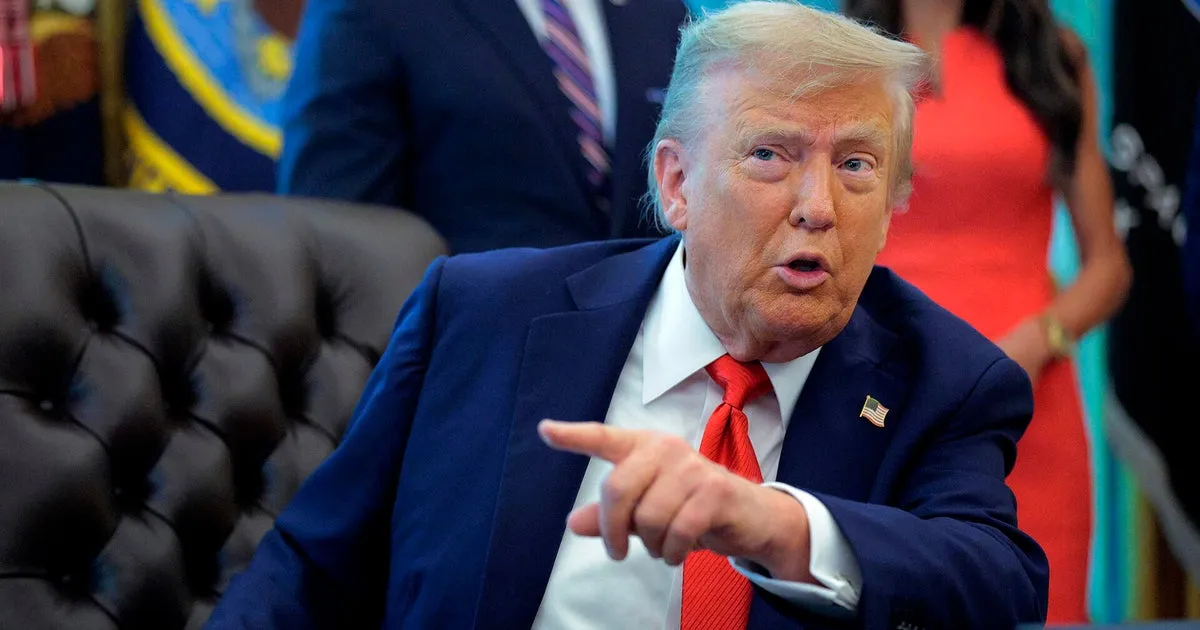
On Monday, President Trump sparked discussions by suggesting a renaming of the Department of Defense back to its historical title, the Department of War. He justified this proposal by stating that the current name, in use since the 1940s, is too focused on defense rather than offense. "We want to be defensive, but we want to be offensive, too, if we have to be," the president remarked during an event in the Oval Office.
During a series of public appearances at the White House, including a meeting with South Korean President Lee Jae Myung, Mr. Trump emphasized the United States' impressive record of military victories under the old name, particularly referencing the significant achievements during World War I and World War II. Earlier in the day, he indicated that the name change could occur within the next week, stating, "We'll do it a couple more times. And if everyone likes it, we'll make that change."
When questioned about whether the change would require Congressional approval, given that lawmakers had originally passed the legislation to rename the agency, President Trump expressed confidence in bypassing this requirement. "We're just going to do it. I'm sure Congress will go along if we need that. I don't think we even need that," he stated decisively.
President Trump has hinted at this potential name change for months, even referring to his Defense Secretary, Pete Hegseth, as his Secretary of War in a post on Truth Social last month. At a June press conference, Trump suggested that the Department of War's name was abandoned due to political correctness.
The original renaming from the Department of War to the Department of Defense occurred following World War II as part of a broader military reorganization. This significant change aimed to consolidate the Army and Navy into a single Cabinet-level agency. The War Department, which oversaw the Army, had its roots dating back to President George Washington's administration. In the late 1790s, Congress established a separate Navy Department to manage the naval forces and later, the Marine Corps.
For over a century, these two branches operated independently until President Harry Truman advocated for their unification into a single Department of National Defense in 1947. Truman argued that this consolidation was essential for reducing costs while simultaneously enhancing national security.
As discussions about the potential name change continue, it remains to be seen how this proposal will unfold and whether it will gain the support necessary to enact such a significant shift in the government’s largest agency. The implications of reverting to the Department of War would certainly spark a broader conversation about military strategy and identity within the United States.